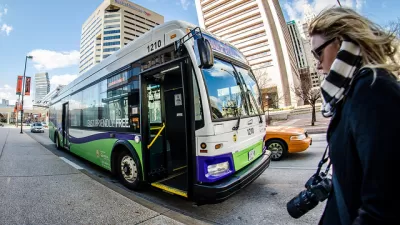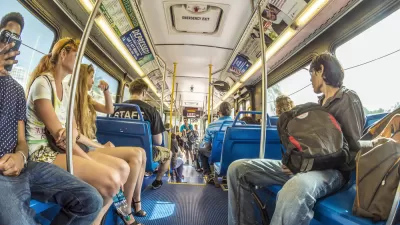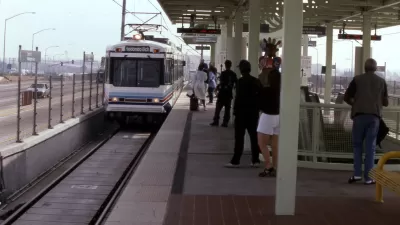The conventional wisdom among Americans who spend lots of time thinking about public transit is that four more years of Obama will be good news, and the election of the Romney-Ryan ticket would be bad. I have to admit that this belief is by no means completely irrational: after all, President Romney will be much less likely than President Obama to veto a transportation bill passed by a Republican Congress, and might propose a mere austere budget than President Obama. Nevertheless, I think there are good reasons to believe otherwise.
The conventional wisdom among Americans who spend
lots of time thinking about public transit is that four more years of Obama
will be good news, and the election of the Romney-Ryan ticket would be
bad. I have to admit that this belief is
by no means completely irrational: after all, President Romney will be much
less likely than President Obama to veto a transportation bill passed by a
Republican Congress, and might propose a mere austere budget than President Obama. Nevertheless, I
think there are good reasons to believe otherwise.
First of all, a Republican Congress of 2014 might differ
somewhat from a Republican Congress of 2012.
Under President Obama, a rational Republican Congressperson is likely to
try to distinguish himself/herself from the President in order to avoid a
right-wing primary challenge; as a result, President Obama's support for public
transit and high-speed rail has probably reduced GOP support for these policies.
But the history of the 2000s suggests that a Republican
Congress working with a Republican President may have different
incentives. After George W. Bush became
President, the Republican Congressional majority was willing to accommodate constituents'
support of Amtrak and public transit.
Between FY 2001 and FY 2007 (when the Democrats took over Congress) federal
aid to public transit increased from $6.9 billion to $8.9 billion, a 29 percent
increase (By contrast, the consumer price index increased by only 19 percent
during that period). Transit ridership
also increased during this period, from 9.6 billion to 10.2 billion.
Furthermore, a Republican Congress may unintentionally support local government revenues, and thus local public transit authorities, by supporting expansionary fiscal
and monetary policies (as opposed to austerity policies that might reduce economic
growth and thus cut into local revenues).*
Under President Romney Republicans will need immediate economic growth
in order to be reelected, since a stagnant economy would make President Romney
unpopular, thus dragging down Congressional Republicans. (By contrast, under President Obama
Republicans had little incentive to support short-term growth, since growth
would benefit President Obama). Assuming
for the sake of argument that Republicans were in fact successful in promoting nationwide economic growth, local tax revenues would recover, thus increasing support for public transit
and other local government programs.
Even if Congressional Republicans do not move to the center,
a Republican Congress might not last for four years under President Romney. When Clinton
was reelected in 1996, the Republicans held Congress, and continued to do so
until well into the Bush Administration. Similarly, when President Reagan was reelected in 1984, and Vice-President Bush succeeded him in 1988, the Democrats held the U.S. House. In other words, when incumbent Presidents are reelected they do not have long coattails.
This pattern suggests that as long as Obama is President, Congressional
Republicans are in a no-lose situation: if people are satisfied, they vote for
the incumbents of both parties (so Republicans hold the House), while if they
are dissatisfied, they punish the President's party (which means that if Obama
is unpopular, the 2014 elections will yield a bigger and perhaps more
radicalized House Republican caucus). Thus, the Republicans will not suffer significant Congressional losses until the first midterm election after a Republican President is elected (that is, until 2018 at the earliest).
On the other hand, if Romney is elected and the economy does
not grow in 2014, the Democrats will take over Congress. Assuming that Congressional Democrats are
more pro-transit than Congressional Republicans, this reason alone may make
Romney the better choice for transit advocates. (Of course, President Romney could decide to propose austere budgets- but if Democrats control Congress, his proposals would receive exactly as much deference as President Obama's budget proposals, which is to say none whatsoever).
Of course, all of this is just speculation, and I cannot say
for sure that a Romney Presidency would be better for transit advocates than
four more years of President Obama and a Tea Party Congress. I do think, however, that this is a
reasonable possibility.
*I am assuming that austerity policies do in fact reduce
economic growth, and that expansionary policies support growth; I note,
however, that many economists of the "Austrian school" reject this view.

Pennsylvania Mall Conversion Bill Passes House
If passed, the bill would promote the adaptive reuse of defunct commercial buildings.
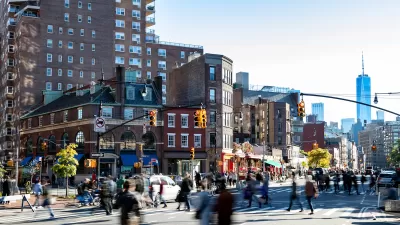
Planning for Accessibility: Proximity is More Important than Mobility
Accessibility-based planning minimizes the distance that people must travel to reach desired services and activities. Measured this way, increased density can provide more total benefits than increased speeds.
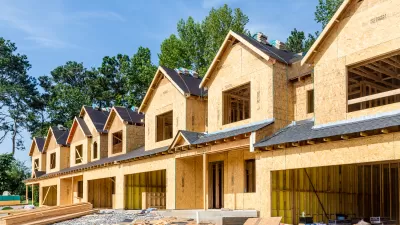
Fair Housing Cannot Take a Back Seat to ‘Build, Baby, Build’
If we overlook fair housing principles in the plan to build US housing back better, we risk ending up right back where we started.

LA Metro Board Approves New 710 Freeway Plan
The newest plan for the 710 corridor claims it will not displace any residents.

Austin’s Proposed EV Charging Rules Regulate Station Locations, Size
City planners say the new rules would ensure an efficient distribution of charging infrastructure across the city and prevent an overconcentration in residential areas.

Making California State Parks More Climate-Resilient
A recently released report offers recommendations for keeping state parks healthy and robust, including acquiring additional land for conservation and recreation.
City of Costa Mesa
Licking County
Barrett Planning Group LLC
HUD's Office of Policy Development and Research
Mpact Transit + Community
HUD's Office of Policy Development and Research
Tufts University, Department of Urban and Environmental Policy & Planning
City of Universal City TX
ULI Northwest Arkansas
Write for Planetizen
Urban Design for Planners 1: Software Tools
This six-course series explores essential urban design concepts using open source software and equips planners with the tools they need to participate fully in the urban design process.
Planning for Universal Design
Learn the tools for implementing Universal Design in planning regulations.
























